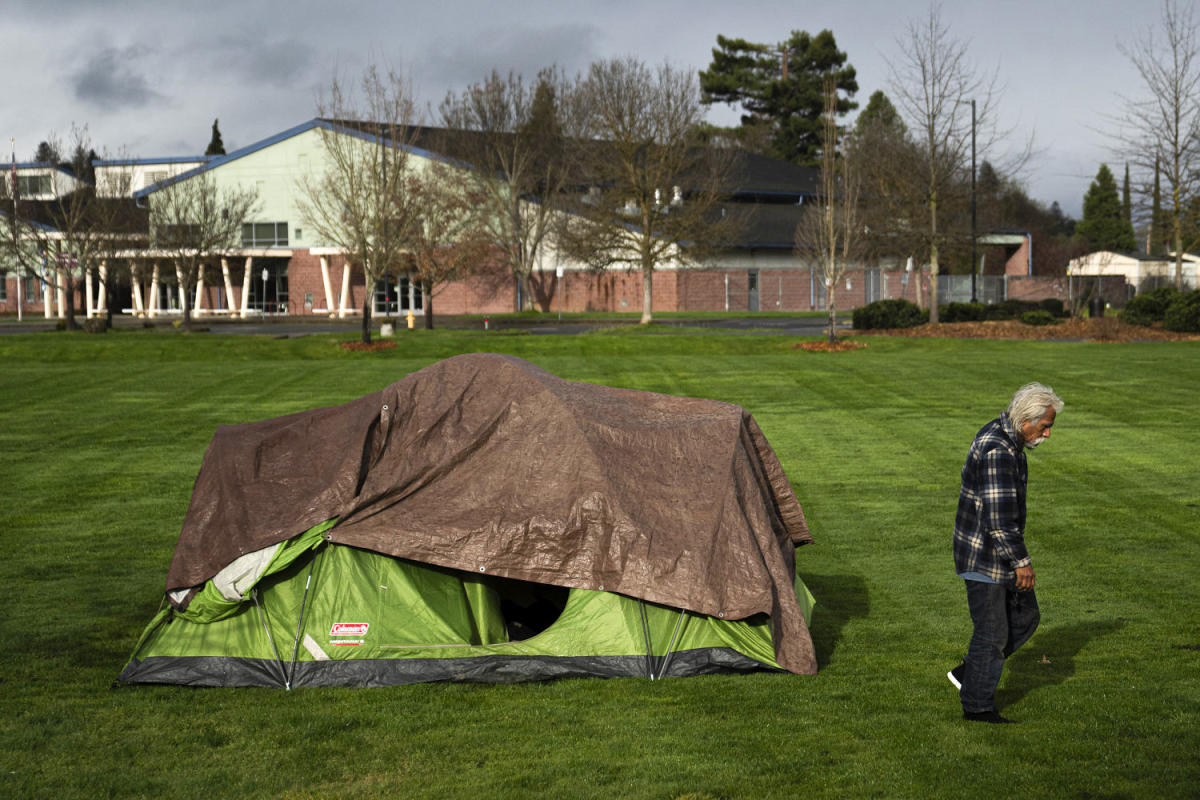WASHINGTON — The Supreme Court on Friday rejected a constitutional challenge to ordinances passed by a small Oregon town. These ordinances punish homeless people who sleep on public property when they have nowhere else to go.
The justices ruled 6-3 on ideological lines, with conservatives in the majority ruling in favor of the city of Grants Pass, saying the measures do not violate the Eighth Amendment to the Constitution, which prohibits cruel and unusual punishment .
“Homelessness is complex,” Justice Neil Gorsuch wrote in the ruling. “Its causes are manifold. So are the public policy responses needed to address it. In essence, the question raised by this case is whether the Eighth Amendment gives federal judges primary responsibility for assessing those causes and devising those responses. It does not.”
Gorsuch added that homeless people may have other defenses against municipal punishment that could be applied in other cases. Grants Pass could also be limited by a new Oregon state law that limits the power of cities to punish people for sleeping on public property.
The ruling drew a sharp reaction from liberal Justice Sonia Sotomayor, who made her strong feelings known for the second day in a row by reading a summary of her dissent in court.
“Sleep is a biological necessity, not a crime,” she wrote.
The Grants Pass policy was “unconscionable and unconstitutional,” she added, saying she hoped the court “will play its role in protecting constitutional liberties for the most vulnerable among us” in the future.
The ruling reverses a 2022 ruling by the 9th U.S. Court of Appeals in favor of a group of homeless people.
That means an injunction that limits the city’s ability to enforce ordinances against people sleeping outside, protected only by blankets and with no other available shelter, will be rescinded. The city would already be able to enforce other aspects of what it describes as its anti-camping policy, including restrictions on more permanent encampments.
The ordinances prohibit sleeping or camping on public property, but the focus is on people who have no alternative due to a lack of homeless shelters in the city, which is about 250 miles south of Portland.
“We are disappointed that a majority of the court decided that our Constitution allows a city to punish homeless residents simply for sleeping outside with a blanket to survive the cold when they have nowhere else to go,” said Ed Johnson, a spokesman of the court. attorney at the Oregon Law Center representing the plaintiffs.
The punishment, which is at the heart of this case, could include fines of up to several hundred dollars and exclusion orders that bar people from accessing public property.
Advocates for the homeless have said the ordinances punish people for existing when they have nowhere else to go and that the measures do nothing to address the underlying problem of housing shortages.
Cities already have the power to regulate homeless camps, she added, something that is not up for debate in the Supreme Court.
Moreover, the ordinances would only serve to shift the burden of caring for the homeless onto neighboring jurisdictions, their attorneys argued.
Grants Pass officials posted a statement on the city’s website saying they are “grateful that the court’s ruling will help us take the next steps regarding homeless members of our community.”
The statement said the city is “committed to helping residents who are struggling to find stable housing.”
The appeals court’s ruling in question applied to all nine states within its jurisdiction, including California. Several of those states have large homeless populations.
Among those asking the Supreme Court to overturn the appeals court were local officials in Los Angeles, San Francisco, Phoenix and other cities.
The Biden administration filed a brief in support of neither party, saying that laws banning sleeping on public property are unlawful “if applied in a manner that prevents an individual without available shelter from remaining in the jurisdiction.”
The appeals court ruled 2-1 that Grants Pass “cannot enforce its anti-camping ordinances against homeless people who merely sleep outdoors with rudimentary protection from the elements, or who sleep in their cars at night when there is no other place in the city is where they can go.”
The decision only applies in situations where ‘no shelter space is available’, the court said.
The ruling largely upheld a federal judge’s order that limited the city’s ability to enforce ordinances against certain homeless people sleeping in parks overnight.
The case arose after a group of homeless people challenged the application of the regulations. They say there is no shelter, so they have little choice but to sleep outside.
City officials argued in court that the ordinances meet legal requirements and are intended to prevent the spread of homeless camps.
Officials claim their policy is aimed at encouraging homeless people to seek housing, even though the city itself does not have its own shelter. It directs people to a place run by a religious organization with limited space and imposes conditions that some homeless people object to.
This article was originally published on NBCNews.com
